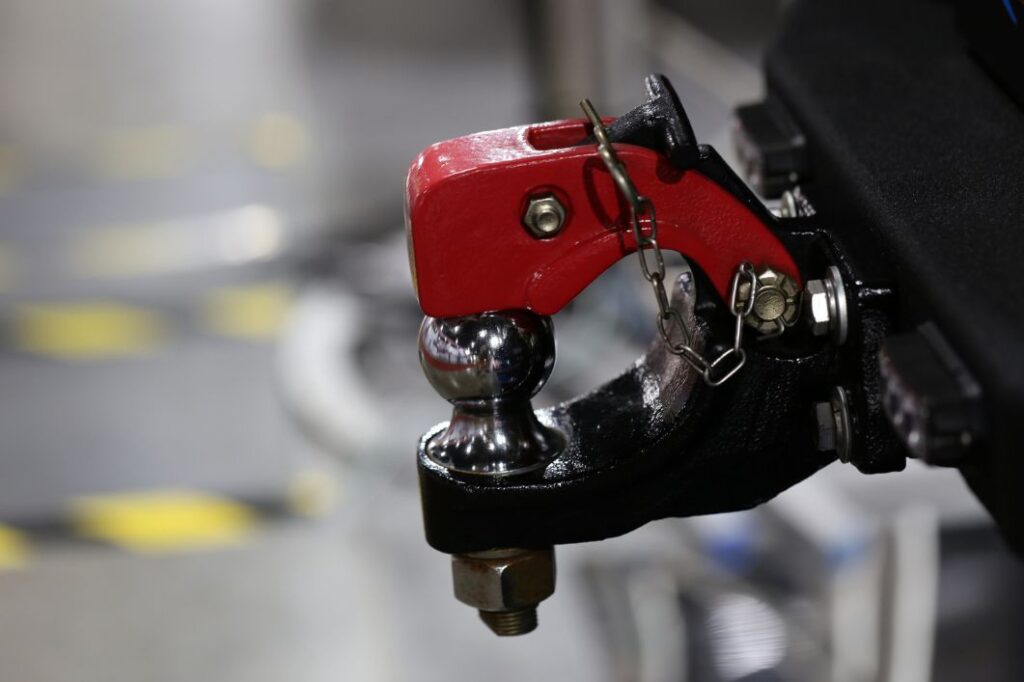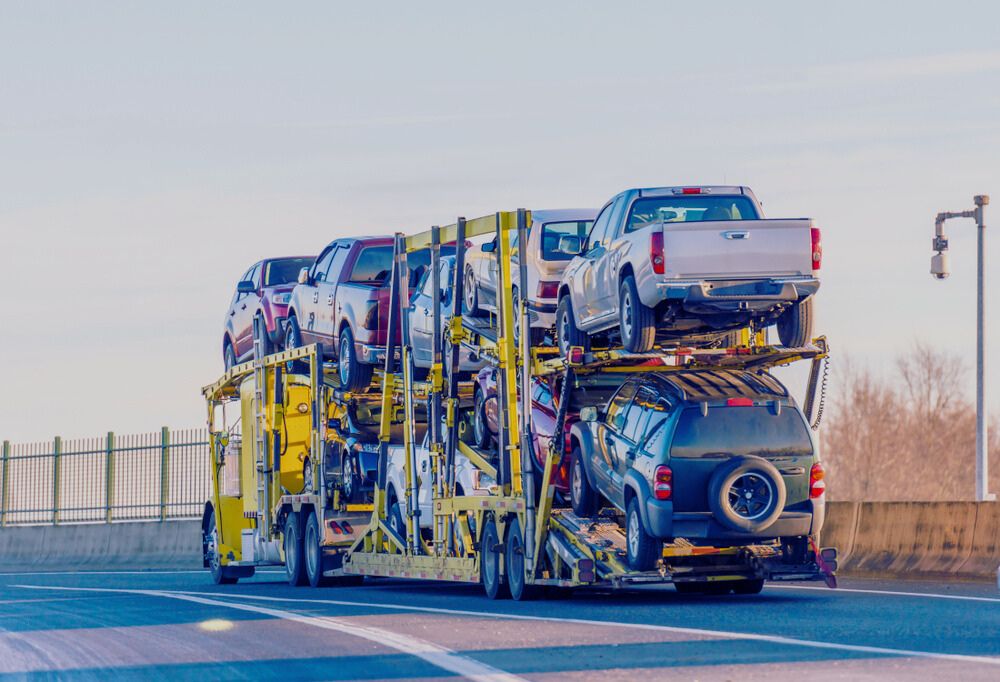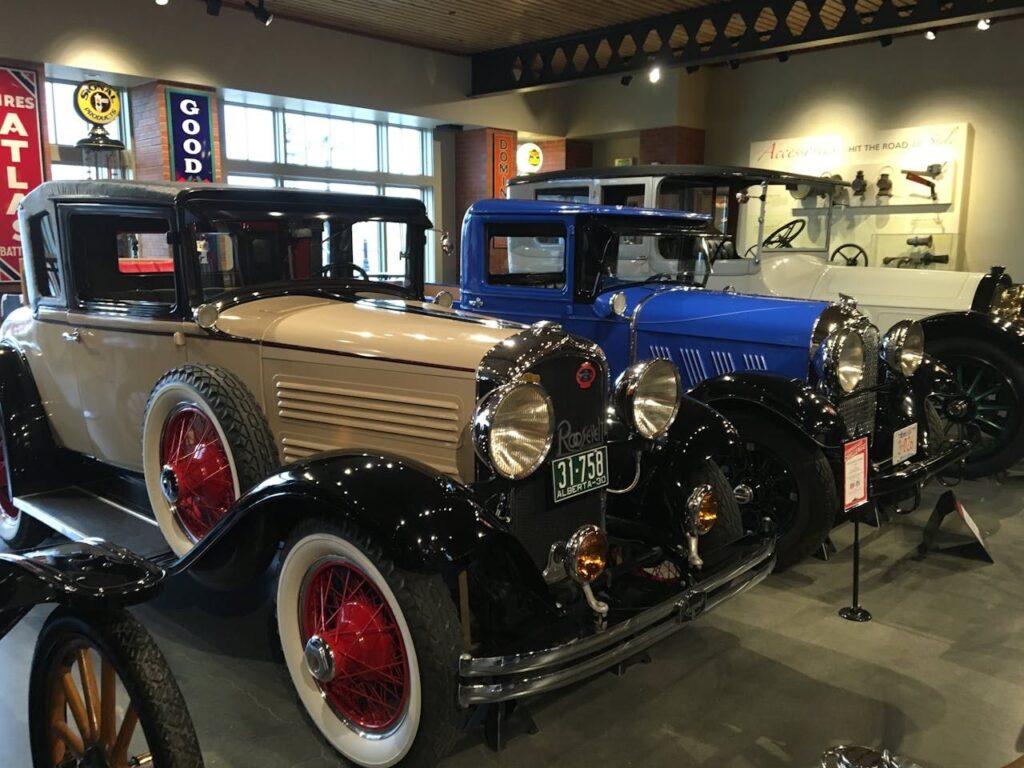How to Tow Any Trailer
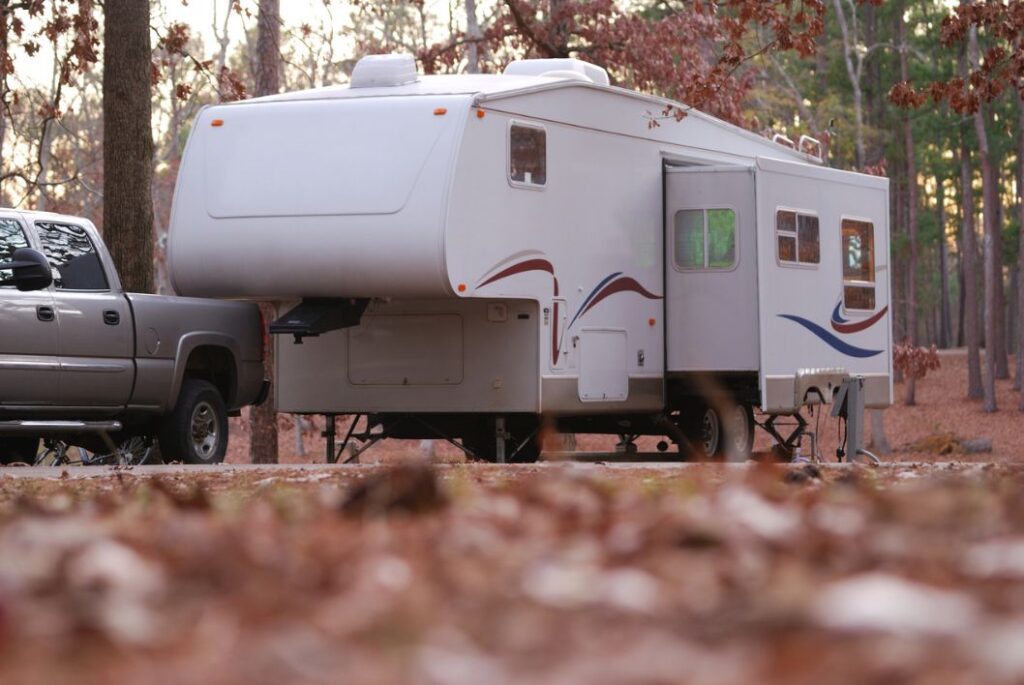
Types of Trailer Hitches: Finding The Right Hitch For Your Trailer
When setting off for long-distance towing trips, it is essential to have the appropriate trailer hitch. A trailer hitch serves as the vital connection between your trailer and truck, ensuring safe and secure transportation. It consists of two main components: the trailer hitch attached to the trailer and the receiver hitch mounted on the truck. These two elements must be compatible to function effectively.
Understanding your trailer is essential to select the most suitable hitch for your transport. Factors such as the gross trailer weight (GTW), which includes the total weight of the trailer along with equipment and cargo, must be considered. However, we do not generally recommend leaving personal belongings in your trailer should you opt to use a auto transport company because these items are not covered by the carrier’s insurance.
The type of trailer and its compatibility with specific tow hitches also play a significant role. Choose a trailer hitch that aligns with your trailer’s weight and your truck’s towing capacity. If you experience swaying while towing, a weight distribution hitch may be necessary to ensure stability on the road. Working with an experienced auto transport company can ensure that all of these factors are taken into account and make the transport a smoother and stress-free process.
Navigation
The 4 Most Common Types of Trailer Hitches
Ball Hitch
The ball hitches is the most common type of trailer hitch. These hitches come in different sizes based on weight capacity and manufacturer specifications. They are typically attached to the rear bumper of a truck, which can limit their weight capacity compared to other types of hitches. Ball hitches are not found on heavier RVs but are common on travel trailers. It’s important to match the size of the ball to the coupler for a secure connection.
One advantage of ball hitches is that they allow you to utilize the full space of the pickup bed. They are also affordable, widely available, and can be used with cars, vans, and SUVs since they attach to the rear. However, there are some downsides to consider, such as weight restrictions and the potential for excessive pressure on the back of the towing vehicle, which can impact performance. To address these issues, weight distribution hitches and sway bars are often recommended to improve towing stability and safety. When in doubt, it is best to get in touch with a transport company that can arrange the transport for you. This way, you can easily find a truck that matches your trailer specifications.
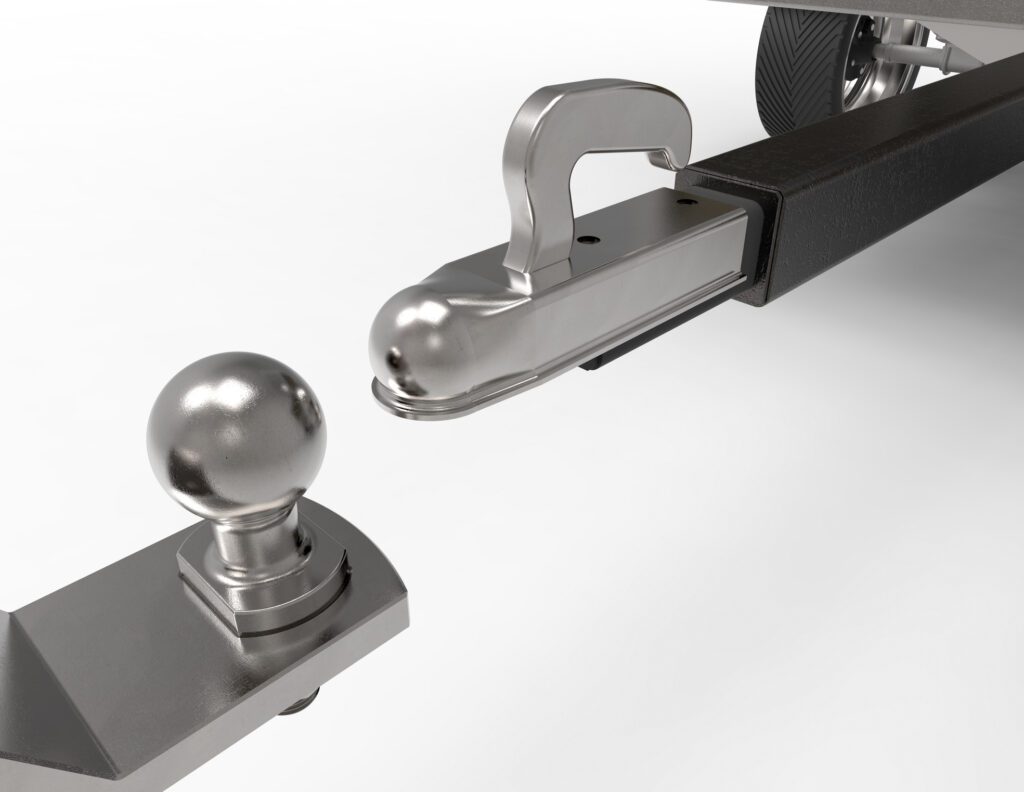
Fifth Wheel Hitch
A fifth wheel hitch is a type of trailer hitch that is installed in the bed of a truck using a plate and pin mounting system. These hitches are commonly used for larger trailers, especially in recreational vehicles like travel trailers and toy haulers. One of the key advantages of a fifth wheel hitch is that it centers the weight of the trailer over the rear axles of the truck, providing better stability compared to hitching on the bumper. A natural drawback of that is that they can take up a significant amount of bed space in the truck. When hiring a auto transport company, this does not pose an issue and can be disregarded since the back of the truck won’t be used for items unrelated to the transport of your trailer.
Modern fifth wheel hitches offer multi-axis tilting, which enhances maneuverability and comfort while towing. They are adjustable to fit different wheelbase configurations. Installation of fifth wheel hitches is relatively straightforward, and they provide a smooth ride with excellent maneuvering capabilities. Consulting with a transport specialist and utilizing a fifth wheel hitch can contribute to a more streamlined and efficient towing process for your recreational vehicle.
When setting up to tow a trailer, consider consulting a professional transport company. Working with a transport specialist can greatly simplify the process.

Gooseneck Hitch
A gooseneck trailer hitch is a types of heavy-duty towing option designed for hauling larger loads, typically used for commercial purposes such as hot-shot vehicle towing, agriculture, and livestock transportation. The name “gooseneck” comes from its hitch, featuring a long, curved neck that connects to a ball in the truck bed over the rear axle. This design allows the trailer to carry heavier weights, often exceeding 30,000 pounds, without compromising stability. Compared to a fifth-wheel trailer, a gooseneck is more cost-effective and less intrusive, leaving more space in the truck bed for cargo while still providing easy hook-up and operation.
Gooseneck trailer hitches don’t take up too much space in the truck bed compared to a fifth wheel hitch, leaving more room for functional use of the truck bed. In addition, they are fairly easy to install. One downside is that installing the hitch involves drilling a large hole in the truck bed, which might not be desirable for some owners. Moreover, gooseneck trailers can be louder and less stable compared to fifth-wheel trailers. Having a professional and experienced driver helps to make sure that everything goes smoothly.
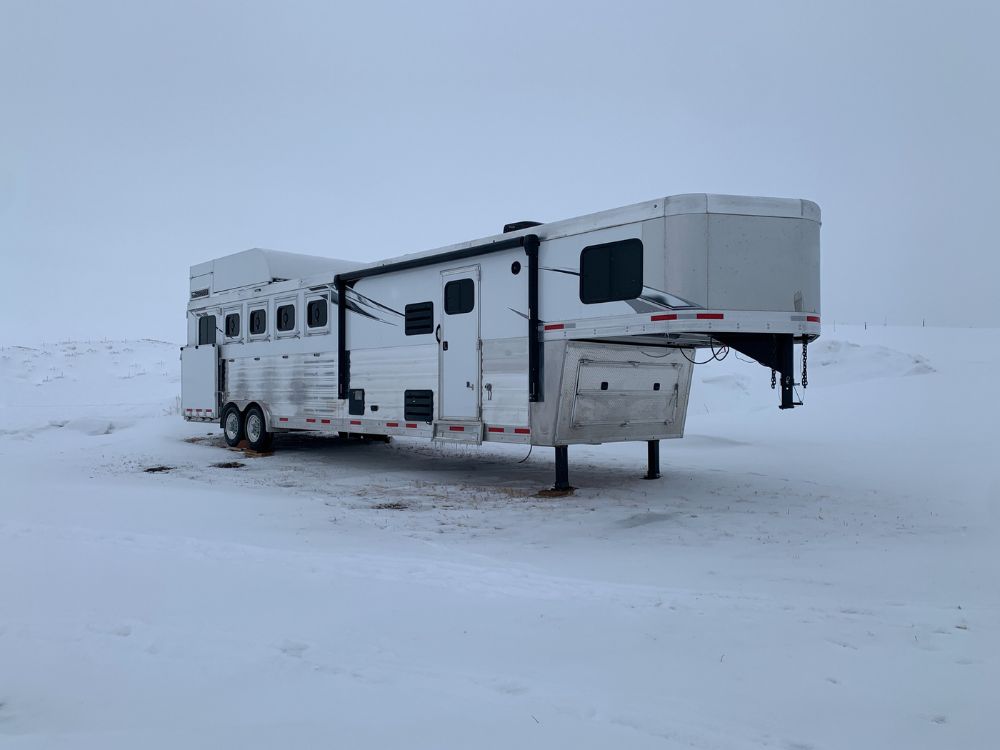
Pintle Hook
Pintle hooks are not commonly used for recreational vehicles. They are a crucial component for heavy equipment and utility trailers. They typically attach to the bumper of a vehicle and are highly durable and reliable. One of its key features is the wide range of motion it allows between the hitch and trailer coupler, making it ideal for heavier loads and rough terrain. These characteristics make pintle hooks a popular choice in industries such as construction, agriculture, and the military, where they are often used on larger and heavier trailers. However, the increased flexibility comes with potential clanging noises that makes for a much louder ride than other hitch types.
When selecting a pintle hook, it’s important to consider the towing capacity of the truck and the type of trailer being used. There are various styles available, including receiver style for standard setups, adjustable mounts for mounting plates, ball and pintle combinations, and lunette eyes. Each style caters to different needs and trailer types. It’s crucial to keep in mind the weight limitations of different hitches to ensure safe towing practices. Common trailers that are often paired with pintle hooks include equipment trailers, utility trailers, dump trailers, tanker trailers, and military trailers. If you are a business looking to transport heavy equipment or trailers, it is best to hire a professional auto transport company that can support you in arranging all the necessary details and equipment.
